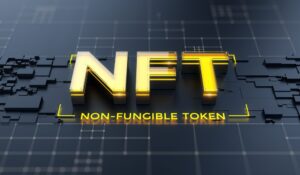NFT Real Estate
NFT real estate, or non-fungible token real estate, refers to using non-fungible tokens (NFTs) to represent ownership or rights to real estate properties. In real estate, NFTs can represent ownership rights to virtual real estate, such as virtual land in online games or virtual reality environments.
NFT real estate allows a digital record of ownership or rights to a property that users can store and track on a blockchain. For example, projects such as Decentraland allow users to use their avatars to buy parcels of land, hold events, and do almost anything possible in Decentraland.
NFTs and Virtual Real Estate
It is still being determined whether NFTs are suitable for representing ownership or rights to virtual real estate properties. However, NFTs can make it easier to represent and transfer ownership of virtual real estate, such as virtual land, in virtual reality environments; this development could make buying and selling virtual real estate more efficient and transparent.
On the flip side, there are several challenges and uncertainties surrounding using NFTs in virtual real estate. For example, it still needs to be clarified how financial bodies will regulate NFTs or how the existing laws and regulations related to virtual property will influence NFTs.
There are also concerns about the security and reliability of NFTs in representing ownership, and the environmental impact of using NFTs, given the energy-intensive nature of blockchain technology.
Factors Influencing Real Estate Prices in the Metaverse
Real estate prices in the metaverse, or virtual reality, are under the influence of several factors, including:
Location: The location of virtual real estate can influence its value. For example, virtual real estate in a popular or central area within the metaverse may be more valuable than real estate in a less popular or peripheral area.
Rarity: Virtual real estate that is rare or hard to come by may be more valuable than more common virtual real estate. For example, virtual real estate with unique features or a limited supply may be more popular and, therefore, more expensive.
Utility: Virtual real estate that has practical uses or is well-suited to certain activities may be more valuable than real estate that is less useful. For example, virtual real estate that is well-suited to hosting events or virtual storefronts may be more valuable than real estate that is less useful.
Supply and Demand: The supply of virtual real estate can also influence its value. If there is a limited supply of virtual real estate in a particular location or with particular features, the price may be higher due to the scarcity of available options.
It is important for any investor, especially in the Crypto and Metaverse world, to consider their investments carefully and make well-informed decisions.
Disclaimer: NFTs and Cryptocurrencies are highly volatile, conduct your own research before making any investment decisions. Some of the posts on this website are guest posts or paid posts that are not written by our authors (namely Business Voices content) and the views expressed in these types of posts do not reflect the views of this website. Please read our full disclaimer here.




